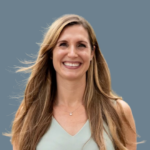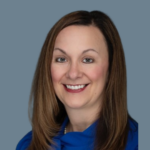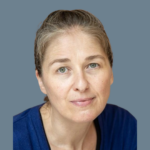Master Class Knowledge Exchange Speaker Series – Season 23
An online series distinguished by its focus on aphasia and real-life participation. The webinars provide an opportunity for practicing clinicians to hear from a prestigious group of international aphasia researchers. Webinars will be available Live and Archive (Recorded).
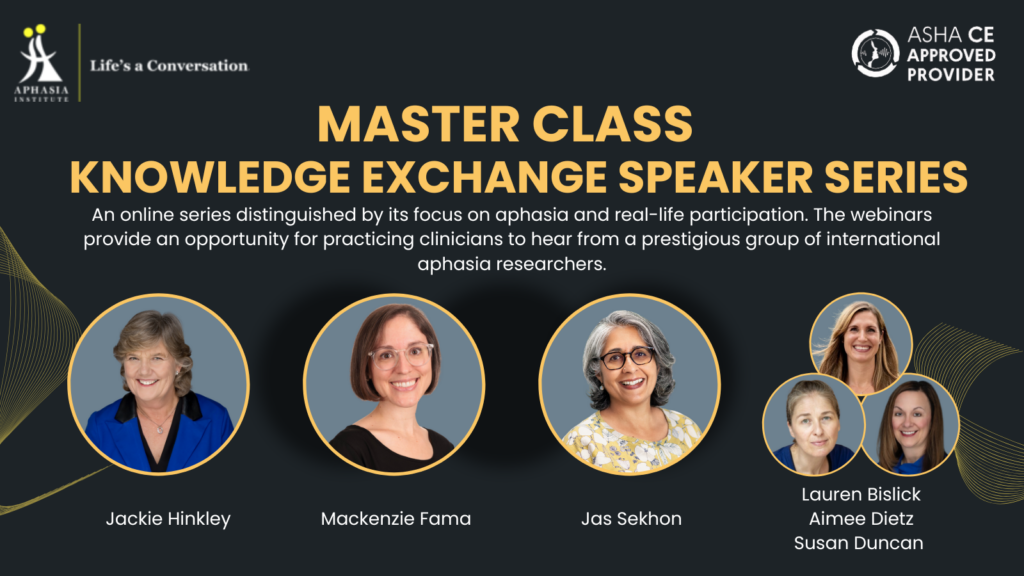

specific products or clinical procedures.
Please refer to each course description for instructional level and ASHA CEUs
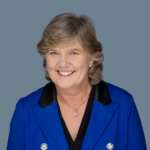
Date/Time:
LIVE: September 22, 2025 – 12pm to 1pm ET | ARCHIVE: September 23 – October 7, 2025
ASHA CEUs: 0.1 (Intermediate level)
Webinar Description
Belief in potential success is necessary to persist towards communication and life goals. Communication confidence, self-esteem and self-efficacy are related concepts that help people with aphasia continue to try. We define these constructs in ways that can be used by clinicians, describe clinical measures, and show how self-efficacy changes when intervention is focused on life participation.
Learning Outcomes
- Identify the differences and similarities between communication confidence, self-esteem, and self-efficacy
- Describe one example of a clinical measurement tool for confidence or self-efficacy
- Discuss how self-efficacy changes in relation to different types of aphasia treatment
Time Ordered Agenda
- 12:00pm – 12:05pm: Introduction to the topic with case example
- 12:05pm – 12:10pm: Definitions of key constructs
- 12:10pm – 12:20pm: Measurement examples
- 12:20pm – 12:40pm: Changes related to treatment
- 12:40pm – 12:45pm: Conclusions
- 12:45pm – 1:00pm: Questions & Discussion
Meet the Presenter
Dr. Jackie Hinckley is Professor and Program Director in the Department of Speech-Language Pathology at Nova Southeastern University in Ft. Lauderdale, Florida, USA. She is an ASHA Fellow and Fellow in Person-Centered Care. Dr. Hinckley is Chair of the Board of Directors of the National Aphasia Association. She has published and presented on many clinical aspects of aphasia rehabilitation.
Disclosures
- Financial: Dr. Hinckley receives salary from Nova Southeastern University.
- Non-Financial: Dr. Hinckley is Chair of the Board of the National Aphasia Association (voluntary, unpaid).
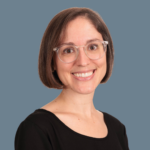
Date/Time:
LIVE: October 20, 2025 – 12:00pm to 1:00pm ET | ARCHIVE: October 21 – November 4, 2025
ASHA CEUs: 0.1 (Intermediate level)
Webinar Description
Individuals with aphasia report a mismatch where they can often say words in their head even when they cannot say them aloud. Recent research suggests that these reports of successful “inner speech” are meaningful and reflect intact word retrieval. Here, Dr. Fama will share results from a study examining the clinical impact, showing that inner speech can predict learning during naming treatment.
Learning Outcomes
- Recognize theoretical and brain bases for inner speech
- Discuss potential clinical applications of inner speech in aphasia
- Describe how self-reported inner speech relates to outcomes of a cueing-based naming treatment
Time Ordered Agenda
- 12:00pm – 12:05pm: Introduction and Disclosures
- 12:05pm – 12:20pm: Overview of Inner Speech, Prior Research, and Potential Implications for Naming Treatment
- 12:20pm – 12:30pm: Methods: Participants, Treatment Design, Analysis Plan
- 12:30pm – 12:45pm: Results
- 12:45pm – 12:50pm: Conclusions and Future Directions
- 12:50pm – 1:00pm: Questions & Discussion
Meet the Presenter
Mackenzie Fama, Ph.D., CCC-SLP is an Assistant Professor of Speech, Language, and Hearing Sciences at the George Washington University. Her research program aims to improve language recovery and quality of life in aphasia. Most of her lab’s current work is focused on understanding the experience of inner speech in aphasia, including its role in cognitive processing and implications for treatment.
Disclosures
- Financial: Dr. Mackenzie Fama receives a salary (full-time) from the George Washington University. Dr. Fama is also a contract-based employee at the Stroke Comeback Center.
- Non-Financial: Dr. Mackenzie Fama has no non-financial relationships to disclose.
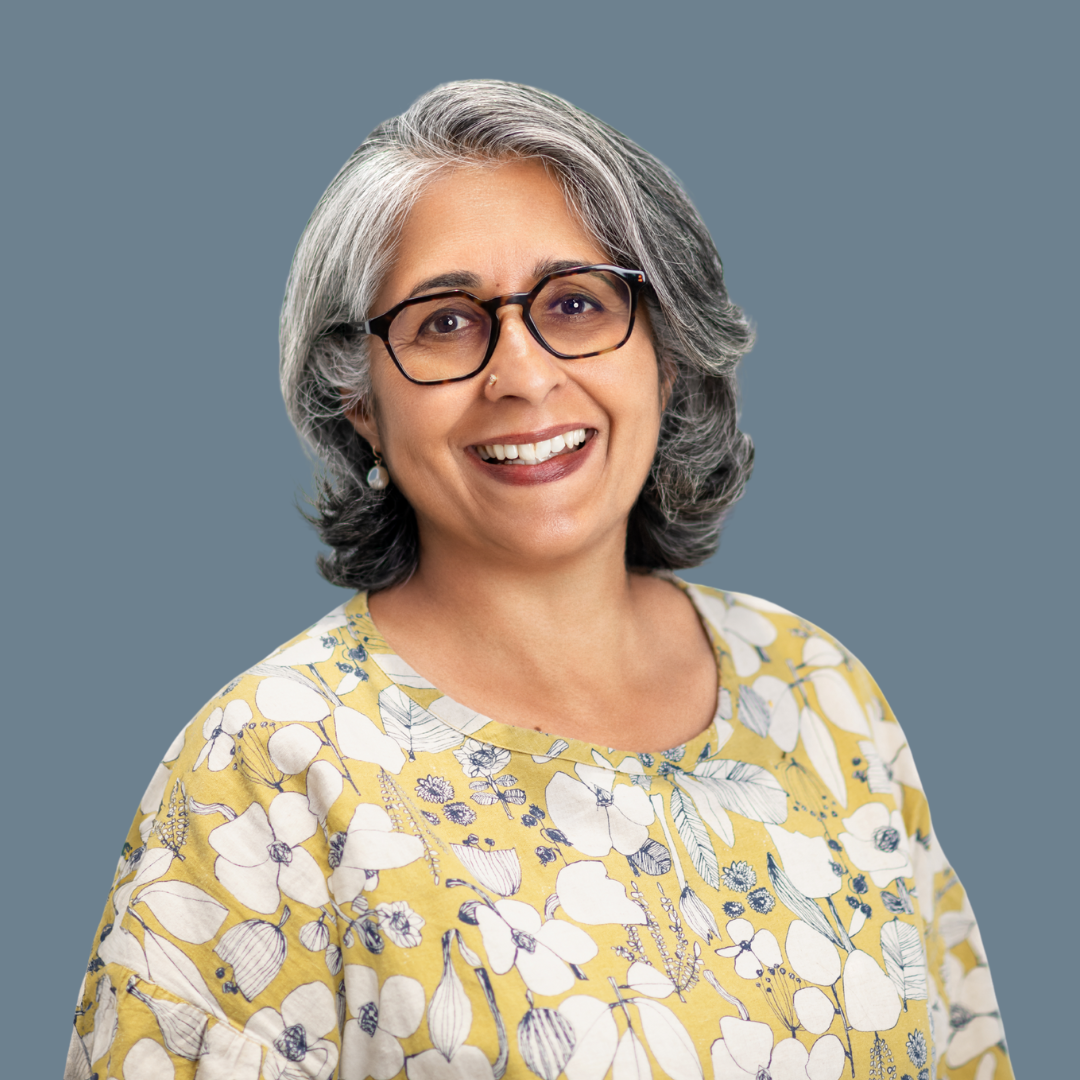
Date/Time:
LIVE: November 17, 2025 5:00pm – 6:00pm ET | ARCHIVE: November 18 – December 2, 2025
ASHA CEUs: 0.1 (Intermediate level)
Webinar Description
Dr. Sekhon will present on research that improved speech pathologists’ knowledge, skills and confidence for supporting psychological wellbeing. This includes a systematic review of counselling education, a survey of student counselling education, and a trial of counselling education on speech pathology self-efficacy and self-rated competency for supporting psychological wellbeing.
Learning Outcomes
- Describe speech pathologists’ role in supporting psychological care in post-stroke aphasia rehabilitation according to the stepped psychological care framework
- Explain brief and person-centered approaches to support psychological wellbeing in post-stroke aphasia rehabilitation
- Discuss practices that can enable speech pathologists to feel confident and competent to support psychological wellbeing in post-stroke aphasia rehabilitation
Time Ordered Agenda
- 5:00pm – 5:05pm: Introduction & Disclosures
- 5:05pm – 5:20pm: Psychological care after stroke and speech pathologists’ role
- 5:20pm – 5:30pm: Speech pathologist counselling education for psychological care in post-stroke aphasia
- 5:30pm – 5:45pm: Preliminary evidence of education that improves speech pathologists’ self-efficacy and self-rated competency to support psychological wellbeing
- 5:45pm – 5:50pm: Conclusion and resources
- 5:50pm – 6:00pm: Questions & Discussion
Meet the Presenter
Dr. Sekhon has worked as a speech pathologist in healthcare for over 30 years. She completed her PhD in 2022 under the supervision of Professors Miranda Rose, Jennifer Oates and Ian Kneebone, and investigated education that enabled speech pathologists to support psychological care in aphasia rehabilitation. She works clinically and facilitates the Counselling Education in Aphasia Rehabilitation (CLEAR) short course at La Trobe University.
Disclosures
- Financial: Dr. Jas Sekhon works part-time (0.6 FTE) as a speech pathologist (clinician) in Community Rehabilitation, Monash Health, Victoria, Australia. Dr. Sekhon also works contractually at La Trobe University, Australia, to facilitate the CLEAR – Counselling Education in Aphasia Rehabilitation short course.
- Non-Financial: None.
Date/Time:
LIVE December 8, 2025 – 12:00pm to 1:00pm ET | ARCHIVE: December 9 – 23, 2025
ASHA CEUs: 0.1 (Intermediate level)
Webinar Description
This session reviews research on yoga for people with aphasia (PWA), including studies exploring personal experiences and outcomes like stress, resilience, sleep, pain, and aphasia impact. The rationale for using yoga and adaptations for diverse linguistic and physical abilities will be discussed.
Learning Outcomes
- Summarize current research on yoga for people with aphasia, including potential benefits for stress, resilience, sleep quality, pain, and aphasia impact
- Describe adaptations that support the participation of people with aphasia in yoga classes
- Discuss practical ways to integrate yoga into clinical, community, or personal settings
Time Ordered Agenda
- 12:00pm – 12:05pm: Introductions and disclosures
- 12:05pm – 12:10pm: Statement of the problem and rationale for use of yoga in aphasia
- 12:10pm – 12:15pm: Discussion of communicative and physical adaptations with yoga to ensure participation of people with aphasia
- 12:15pm – 12:25pm: Background on prior studies of yoga (and related components) in aphasia
- 12:25pm – 12:35pm: Description of methods and findings from presenting team’s interrelated studies
- 12:35pm -12:45pm: Future research directions and potential for clinical incorporation of yoga in aphasia therapy
- 12:45pm – 1:00pm: Questions & Discussion
Meet the Presenters
Dr. Lauren Bislick, PhD, CCC-SLP, CBIS, is an Associate Professor in the School of Communication Sciences and Disorders at the University of Central Florida (UCF). She directs the UCF Aphasia House and the Aphasia and Related Conditions Research Lab. Her research focuses on acquired apraxia of speech, aphasia, and quality of life, including yoga for people with aphasia and friendship post-stroke.
Dr. Aimee Dietz is an SLP with nearly 25 years of experience working with people who have aphasia, and has forged a line of research examining the role of AAC as a language recovery tool for people with aphasia, with an interest in identifying associated neurobiomarkers. She has also cultivated a line of inquiry that explores how mind-body practices might be harnessed to build resilience and coping for people with post-stroke aphasia and their co-survivors.
Dr. E. Susan Duncan, PhD, CCC-SLP is a cognitive neuroscientist and certified yoga instructor. As Associate Professor in the Speech-Language-Hearing Sciences PhD Program at the City University of New York (CUNY) Graduate Center, Dr. Duncan’s primary research program uses neuroimaging and neurostimulation to understand and enhance language organization in the brain, with an emphasis on functional outcomes and quality of life.
Disclosures
- Financial:
- Dr. Lauren Bislick receives a salary from the University of Central Florida (UCF) to conduct research. Dr. Bislick received grant support from the Orlando Health Community Grant Program to support the programming for some of the research shared in this presentation.
- Dr. Aimee Dietz receives a salary from the University of South Florida to conduct research.
- Dr. E. Susan Duncan receives a salary from the City University of New York (CUNY) to conduct research.
- Non-Financial:
- Dr. Lauren Bislick has no non-financial relationships to disclose.
- Dr. Aimee Dietz has no non-financial relationships to disclose.
- Dr. E. Susan Duncan has no non-financial relationships to disclose.
Satisfactory completion of each webinar will require (to be reported for ASHA CEU credits*):
- Attending the webinar in full
- Submitting a webinar evaluation, which includes self-assessment of learning
*You will be required to complete an intent to earn ASHA credits at the end of each webinar
Registration Details
FEES:
Individual Registration (4 Webinars Series): $120 CAD
Group Rate for 12 Participants (4 Webinars Series): $250 CAD
Group Rate for 30 Participants (4 Webinars Series): $350 CAD
*Aphasia Institute is committed to providing universal access to all of our educational offerings. Please contact us at training@aphasia.ca or call us at 416-226-3636 if you require any accommodations.
Not receiving our email updates? Contact us at training@aphasia.ca to sign up.

